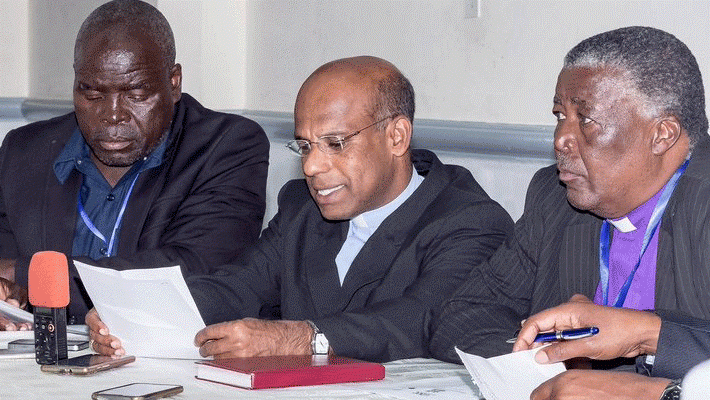By CISA
HARARE, JULY 16, 2020 (CISA)-The Zimbabwe Heads of Christian Denominations convened the first consultative meeting attended by 17 political parties as part a series of consultations lined up by the churches to find consensus on the current but also long-standing challenges facing the nation.
A statement released on July 13 by the Zimbabwe Heads of Christian Denominations said the meeting, “…is a culmination of a week of extensive bilateral engagements in which even those political parties that did not attend today’s meeting gave input.”
The meeting was attended by 17 political parties in the country but snubbed by the two main political factions ZANU-PF and MDC Alliance.
During the meeting, participants raised key challenges the country is going through noting that there is need for everyone to realize that the nation is in an emergency situation.
“It was noted with concern that the current state of the health sector characterized by the failure by the government to amicably resolve the protracted strike by the medical personal, did not augur well with the desperate need to prepare for the spiraling cases of Covid-19,” it reads noting that the resources mobilized for the pandemic were not being handled in ways that instilled confidence in the public.
Concerns were also raised regarding failure to implement the constitution which has seen an increase in fear among citizens confronted by violence and many unresolved cases of abductions and systematic torture at the hands persons alleged to be state functionaries.
“While some participants raised concerns on the integrity of the current constitution, there was unanimity that it was supposed to be implemented before it can be amended,” it reads.
They also highlighted the negative effects of the current economic collapse which they said is characterized by increasing corruption cases, most of which they say are not being resolved satisfactorily.
“There was general agreement that even the informal economy which had become the source of livelihoods for the majority of citizens had been destroyed, not only due to the effects of Covid-19, but because of the economic policies in which citizens were not properly consulted,” it adds.
The contributors associate the level of poverty to the marginalization of citizens and the inability of women and children to participate in a meaningful democratic process.
While calling for an urgent dialogue to address the challenges, the political parties blamed the current issues on the failure by the government to properly address the past and present human rights violations in the country.
“Without such closure, the nation has not managed to build a shared national vision and shared values. There were concerns that this wounded past, some communities feel deliberately marginalized from the national development priorities.”
Going forwards, the political parties have asked church leaders to consult Civil Society Organisations, business, the security sector, traditional leaders, churches and political parties towards an inclusive, comprehensive and broad-based dialogue process, as a matter of urgency.

